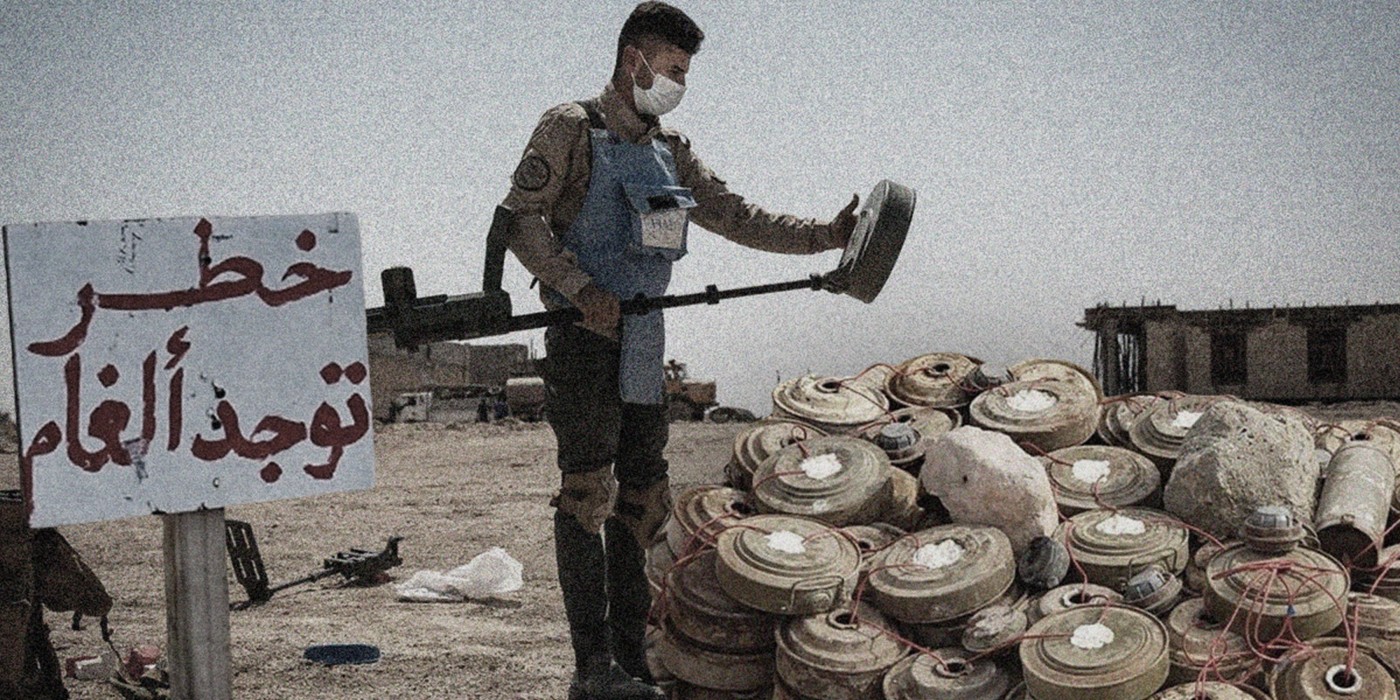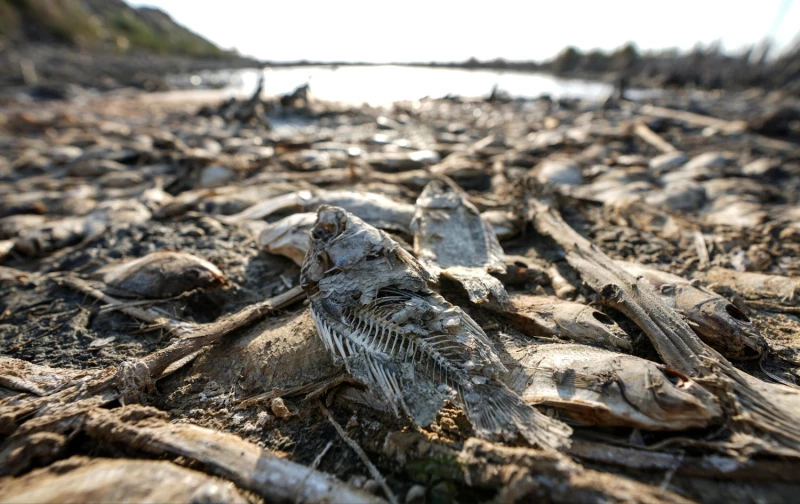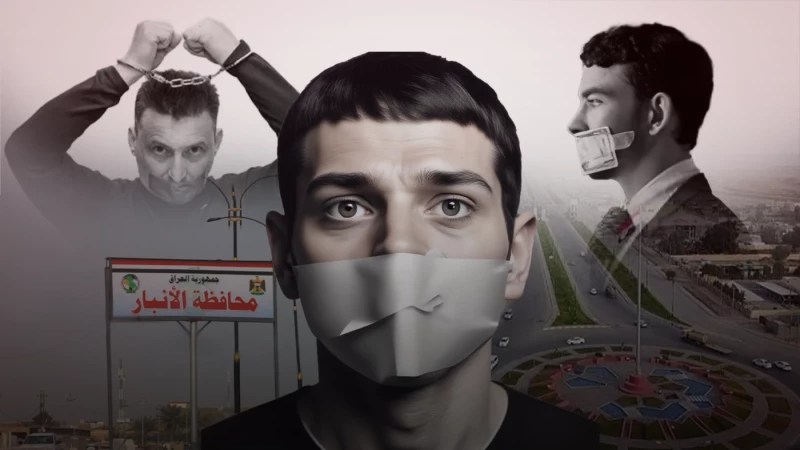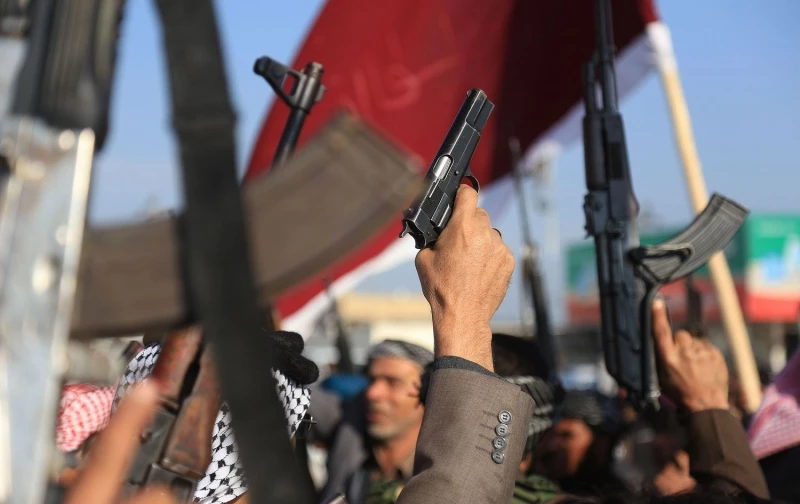Loss of lives and dismemberment, a multitude of tales and sorrows are the legacy of the mines strewn across Iraq, spanning from its northern regions to its southern borders as a result of the wars and conflicts that have engulfed the nation since the 1980s up to the present day.
In recent times, notable progress has been made in tackling the menace of mines, with contaminated zones reducing to less than half nationwide.
Nonetheless, this stride has not been without its hurdles, as it has been tainted by instances of corruption, given its reliance on funds from international organizations, sparking skepticism among certain politicians and influential figures.
According to data compiled from demining operations, Basra province stands out as the most heavily mined area both in Iraq and globally, as highlighted by Mustafa Hameed, the Media Director of the Mine Affairs Department at the Ministry of Environment.
Hameed explained that following the year 2003, the mined area spanned 6000 square kilometers. However, he noted that concerted land clearance efforts have significantly diminished the contaminated area, bringing it down to just 2100 square kilometers.
"Maysan province came in second after Basra, followed by Wasit, Babil, Anbar, and Nineveh,” Hameed said, pointing out that "the current financial allocations stem from a $400 million British loan earmarked for Iraq.”
“However, its disbursement has been delayed due to a series of procedural requirements and licensing obligations that must be met by British firms,” he added. “These companies are mandated by the loan agreement to conduct clearance operations independently with their specialized teams, under the coordination of the Mine Affairs Department."
Regarding Iraqi and field teams engaged in mine clearance, they previously operated with support and financial grants from the US State Department or other countries, aiming to eliminate the mine threat in the country, according to Hameed, affirming that "this file is deemed crucial for Iraq and the international community due to the substantial danger it presents, continuing to claim victims."
Regarding the projected timeline for resolving the mine issue, the department's spokesperson said that "a substantial portion of this file could be addressed by 2028, contingent upon the consistent release of necessary financial allocations and the establishment of administrative and legal frameworks to ensure transparent operations."
It is noteworthy that the origins of many documented minefields in Basra and other Iraqi provinces trace back to the eight year war with Iran in the 1980s, alongside the subsequent invasion of Kuwait in the early 1990s and the international military operations against Iraq.
These areas of contamination encompass hazardous ordnance like landmines, cluster munitions, and other remnants of war.
Meanwhile, provinces such as Nineveh, Salahadin, Anbar, and Kirkuk saw the infiltration of terrorism and the subsequent warfare against it between 2014 and 2017. Consequently, these regions have also become contaminated with weapons and remnants of war.
Pierre Lemelin, former Senior Programme Manager of the Iraq Program at the United Nations Mine Action Service (UNMAS), stated two years ago that areas contaminated with mines planted by ISIS span over 1500 locations in liberated cities across Iraq.
He highlighted a decline in funding from donors due to competing priorities and conflicts in other parts of the world. Additionally, some donors perceive Iraq as a wealthy nation capable of financing its own initiatives.
Corruption is often equated with "death"
In the midst of these developments, a source familiar with the international dossier on mine clearance in Iraq has disclosed that the situation regarding mine clearance in Iraq is continuously evolving in response to new detection and clearance operations.
However, there are constraints on individuals attempting to divulge information about this issue and its specific particulars.
The source, who opted to remain anonymous said that "there are governmental and influential figures reluctant to divulge details regarding the mines file unless through designated individuals, creating considerable challenges in handling the dossier both internationally and domestically."
“Any international grant or loan earmarked for this file in Iraq will present significant challenges for signatories, as lower-level employees facilitate fund disbursement, while higher authorities aim to exert control over the allocated amounts,” they added
The source emphasized that mine clearance demands significant manpower and specialized teams to detect and eliminate the threat, safeguarding land for civilian habitation and activities.
However, the international organizations "are reluctant to entrust the mines file to any military entity in any country."
Consequently, it has been delegated to the Iraqi Ministry of Environment, which is overwhelmed and ill-equipped to handle it due to resource shortages, capacity constraints, and inadequate funding.
According to a recent Foreign Policy report, this issue poses a fundamental hurdle to Iraq's economic development, the repatriation of displaced individuals, and the provision of critical services like healthcare and education.
The report highlights that over a quarter of the pollution from explosive remnants is concentrated in agricultural regions, impeding farmers' ability to utilize the land or sustain their livelihoods.
Moreover, approximately 20 percent of this pollution is situated close to or within infrastructure, obstructing reconstruction initiatives and economic revitalization efforts.
The Red Cross's impact
Regarding international organizations and their endeavors, Heba Adnan, the spokesperson for the International Committee of the Red Cross, addressed the reported statistics concerning mine clearance in Iraq.
Adnan stated that "the work is progressing as per the data routinely issued by the Mine Affairs Department."
"The slowdown in clearance operations also stems from the requirement for financial resources and specialized team equipment," she said, emphasizing that "the Red Cross's involvement includes providing support through GPS devices for search and metal detection, as well as awareness campaigns. However, all these efforts may not suffice to meet the substantial demand for human and material resources that must be supplied."
"When the remaining contaminated area was 2600 square kilometers, it was equivalent to 364 thousand football fields, but now it is less than that," she highlighted, noting that "Basra leads in the list of contaminated areas with approximately 1200 square kilometers, and the overall area will take years to complete its clearance."
The Red Cross spokesperson highlighted the presence of a specialized center in Erbil, affiliated with the International Committee of the Red Cross, serving provinces like Nineveh, Kirkuk, and Diyala, along with the northern regions.
This center extends vital assistance to individuals by providing prosthetic limbs, supports, and wheelchairs to compensate for lost limbs, irrespective of whether it resulted from mines or other causes. Additionally, it offers financial aid and workshops to assist them in launching projects for a dignified livelihood.
According to Foreign Policy, the precise tally of mine victims remains unclear. However, researchers estimated the death toll to exceed 10,000, with approximately 24,000 individuals injured over the past two decades.


 Facebook
Facebook
 LinkedIn
LinkedIn
 Telegram
Telegram
 X
X



